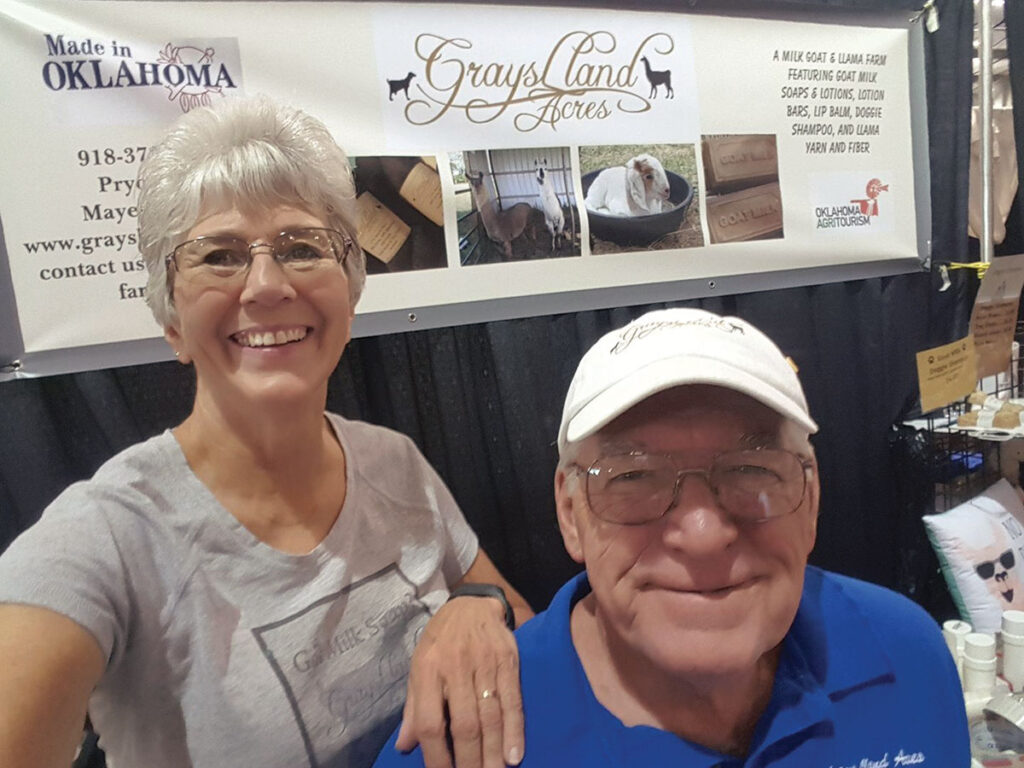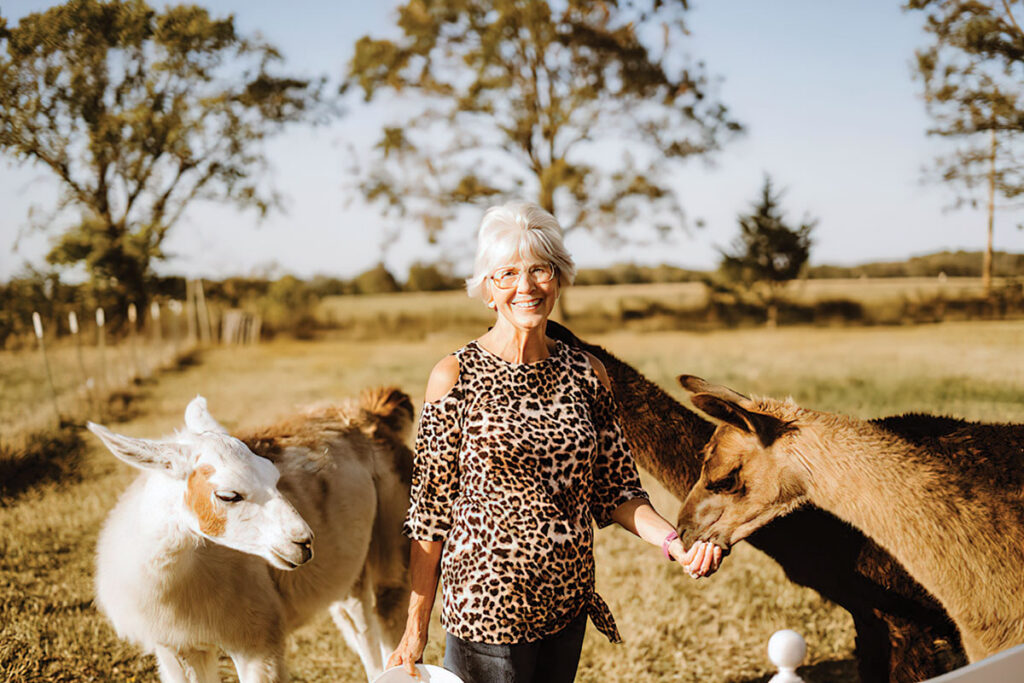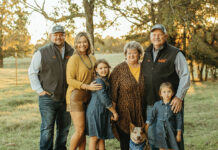
Woman’s adventure into dairy goats became much more than expected
PRYOR, OKLA. – A money-making soap enterprise with roots in Oklahoma is cleaning up economically in Africa for a group of widows allowing them the seldom realized goal of financially freedom.
While manning her booth at the Tulsa State Fair, Myra Grayson, of Pryor Okla.,, was approached by a couple from Centerwill, a Broken Arrow ministry dedicated to caring for the orphans and widows, specifically in Africa.
They weren’t interested in buying Myra’s soap, instead they were interested if Myra wanted to go to Kenya to teach widows how to make soap. The soap making business would profit the widows allowing them to care for their families in the poverty-stricken areas of Kenya.
Myra Grayson has gone on several trips in Kenya teaching a group of widows how to make goat milk soap. She soon realized her hobby and side business of making goat milk soaps, lotions and doggie shampoo at Grays Lland Acres had a much greater purpose – an eternal purpose.
“I often wondered why I had such a passion for making goat milk soap and God gave me the answer by allowing me to go on a soap-making mission trip,” Myra said.
“We are so fortunate to live where we do and of all the things we have,” Myra said, referring to America’s standard of living.
After returning to Oklahoma, Myra sat on her closet floor and cried.
“I have so much, and I saw people having so little, and were happy about everything,” Myra said. “We can all take a lesson for that.”

Steve and Myra Grayson have been raising goats for 14 years and have been married since 2005. They were high school sweethearts who reconnected after 35 years apart.
“We got 20 acres from my sister and brother-in-law, built a house and started getting animals,” Myra said.
Steve named their homestead Grays Lland Acres.
“I added the double ll because of the llamas,” Myra said. “We got the llamas because I thought they would make neat lawn ornaments. I wanted people to drive by and ask, ‘was that a llama?’”

Grays Lland Acres in Pryor is part of the a Made in Oklahoma Company, the Oklahoma Agritourism and Made In The Classroom programs. As part of the state’s Agritourism program, the Grayson’s offer tours where individuals can feed the animals, milk a goat, eat some goat milk ice cream, or learn to felt a bar of soap with llama hair.
Myra lets the mothers raise their kids and typically will milk once a day.
“I don’t separate kids from nannies,” Myra said. “Once the kids are weaned, I will milk twice a day, then once a day and by the time of the Tulsa State Fair I have them dried up and make sure they are in good shape for breeding season.”
The Grayson’s sell milk from the farm and of course they use the milk, she said. Most of Gray Lland Acres milk products is for customers that raise dogs, Myra said.
“It’s really healthy for the pups,” Myra said.
However, there are some human consumers who buy the milk due to being lactose intolerant, she said.
Other items are cheese, yogurt, and ice cream, she said.
Grays Lland Acres is home to 11 goats, 11 Great Pyrenees dogs, eight ducks, seven chickens, four llamas, two roosters, a dog and cat and three Sugar Gliders.
Sugar Gliders are a type of small marsupials. Originally from the rainforests of Australia and Indonesia and have been domestically bred as household pets in the United States for the last 15 years.
“We started out with meat goats and just got them to help clear out brush and trim up some trees,” Myra said.
After a couple of unsuccessful tries with goats, the Gray’s had a friend with a Nubian nanny.
“I fell in love with it,” Myra said.
“He hadn’t planned to sell her, but I ended up with her,” Myra said.
The Nubian nanny was in milk, so Myra built a milk stand and milked her out by hand every day.
“I love their long ears and they are very vocal,” Myra said. “Then I just started adding goats and now I have had at least one of each of the milk breeds.”
The Grayson’s use natural breeding – in the late fall to have spring babies, she said.
“We prefer mid-March and April because usually the ice and snow is gone,” Myra said.
The goats are fed hay in the winter, along with grain – summer months are plentiful with grass and the milk goats are fed grain while being milked, she said.
The goats’ hooves are trimmed every six to eight weeks and are given yearly vaccinations and wormed as needed. While the llamas are getting a yearly haircut, the Grayson’s get their hooves trimmed and any vaccination that are needed.







